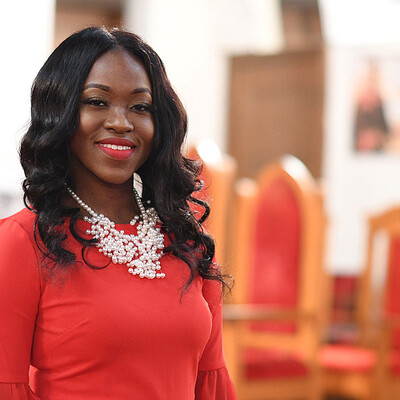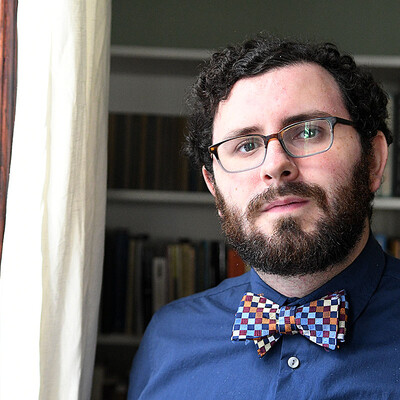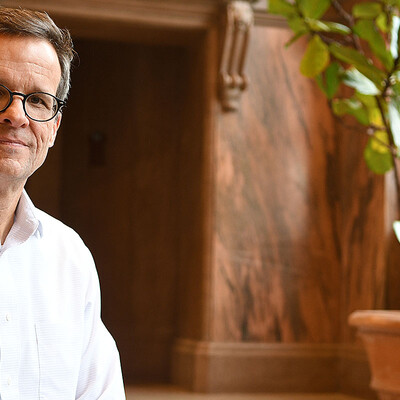‘Growing up is hard’: How Fifth Commandment guided a child during divorce
Loading...
| Merion Station, Pa.
Megan Kacenski is up a tree – her seventh tree of the day, in fact. By now her arms feel too exhausted to lift her chain saw, let alone make a cut. Her crew is growing impatient on the ground, waiting for her to get it together, prune the limb, and move on. Then, oddly enough, a Bible verse pops into her mind: “She is clothed with strength and dignity, and she laughs without fear of the future.” And the 20-something makes the cut.
Why does Ms. Kacenski even want to be in this place, 120 feet in the air, when she could be safely in an office? For her, it’s about love: “I started climbing and working in the field, and I fell in love with it,” she says. She’s starting, ostensibly, at the “bottom” in her training for the national tree care company that her extended family owns. “I love being outside with the different types of trees, the different challenges. It’s very physical.”
Ms. Kacenski got to this place of opportunity with the help of the Fifth Commandment, which directed her to persist during family troubles and ultimately guided her to new relationships with her parents, who encourage her to soar. Ms. Kacenski spoke with the Monitor about the Fifth Commandment – Honour thy father and thy mother: that thy days may be long upon the land which the Lord thy God giveth thee (Exodus 20:12) – as part of our series about the ways in which ancient principles like the Commandments continue to matter in today’s world.
Why We Wrote This
For teens, respecting parents can sometimes be thorny. But Megan Kacenski, whose parents divorced, shares how her faith helped change her attitude. Part 6 in a series looking at the Ten Commandments through modern lives.
“I think this Commandment is something young people struggle with the most. Growing up is hard,” she says, surrounded by the trees that constitute her work. Now a grown-up herself – and with an awareness perhaps beyond her years – she sees the Commandment as not just an obligation but an opportunity. The key for her, she says, has been “adapting to change and still finding love in the [parent-child] relationship.”
Ms. Kacenski needed to start adapting in the sixth grade, when her parents sat their two children down to tell them they were getting divorced. She hadn’t seen it coming. “You have a tendency to be mad,” she says.
She was at an age when relationships with parents can get testy even in the best of circumstances. Raised Roman Catholic and attending Catholic school, she knew her Commandments well, and knew she wasn’t doing much honoring of her parents at the time. She’d come home from school and head immediately to her room to “study.” She’d play her parents off each other. “I knew I was being difficult. I knew I couldn’t blame them and take everything out on them. I knew it was wrong to hole up in my room,” she says.
She also questioned whether her parents were honoring their own faith commitments: “A lot of times in high school when religion teachers would discuss [marriage], it was upsetting that my parents made a decision that the church doesn’t necessarily approve of.”
She managed her emotions by keeping a journal. She also searched online for understanding, and it was there that she came across Proverbs 31, describing a virtuous woman as laughing “without fear of the future.” The verse became her credo of sorts, and she began writing “31:25” on her hand when facing stress. Her mother eventually bought her a ring with the verse on it. “I think she was afraid I’d get it tattooed,” Ms. Kacenski says. Still today, the proverb, as well as a French variation, elle est forte (she is strong), pops up when she needs it most. “It always calms me down,” she says.
At college, a turning point
It wasn’t until college, she says, that she understood and fully accepted the divorce. “I needed to remove myself from it to see it,” says Ms. Kacenski, who grew up in Connecticut. At the University of Massachusetts Amherst, she got involved with campus ministry at the Catholic Newman Center. There she found friends, a Bible study group, a chapel for moments of respite, a priest skilled at applying the Gospels to real-life situations, and leadership opportunities. “In college I made my faith my own. I was able to choose being a Catholic,” she says. And the process of exploring the imperatives of her faith strengthened her relationships with her parents, she believes. It was a matter of “learning what you’re supposed to do, and following through with that.”
Mary Murphy, Ms. Kacenski’s mother, attributes the family’s ability to move forward from divorce to a faith tradition shared across generations in their large extended family. “You realize you have to be considerate of each other. Everyone goes through difficult times, and you just have to respect each other,” she says. “We’re a very respectful family.”
The baseline of respect, rather than any specific strategy, carried the family through, she believes. “The divorce was very challenging. It was necessary. I felt horrible about it, but they understand the reasons now,” she says.
Ms. Murphy’s first child died at birth, an event that she says brought her closer to God and also, over the years, to her surviving daughter. “We always talked about her as her guardian angel, and she still considers her to be her sister,” Ms. Murphy says. She thinks that Megan’s knowledge of the loss her mother suffered adds another dimension to her daughter’s respect. “I’m glad she still has her faith,” Ms. Murphy notes.
Moving to Philadelphia
In Philadelphia, where Ms. Kacenski moved after graduation last year, she worships in a parish in her lively Manayunk neighborhood. She thinks about starting a women’s Bible study. She gets help in living out her values from an “accountability buddy,” one of several close friends who care for and listen to each other, and offer advice from a place of faith, calling each other out when need be. “You need at least one person in your life like that,” she says.
Her journal, which she went through recently, reads “a lot happier now.” It’s more a recounting of concerts and restaurants and less frustration and upset.
But even though she’s moved, family is still “at the forefront of my life,” she says. “They’re constantly on my mind.” She talks with her mom on the phone every day, and her dad once a week. And whereas they’ve acted for years as her personal cheering section, she’s now one of their boosters, encouraging her mother, especially, in post child-rearing pursuits such as travel and running a 5K. She looks forward to returning home to each of her parents – to enjoying her father’s legendary French toast, to cooking alongside her mom for the holidays.
She agrees with her parents now that divorce was the best thing for their family, and also sees positive fallout from it. There’s the singular bond she and her brother forged as they trekked from one parent’s house to the other’s three times a week. There’s the court-mandated time she spent with her father, which brought them closer than his six-day workweeks had previously allowed.
“When I was younger, I took the Commandment as, ‘They’re your parents. You have to respect them.’ Now, they’re people. Sometimes they make mistakes,” she says. “You have to forgive and move on. [Today] I interpret it as it should be a mutual respect. They’ve pushed me in my adventures, and I want to do the same for them. Now I ask, ‘What’s going on in your life?’ I care what’s going on in their life.”
Ms. Kacenski thinks it’s likely she’ll be sore tomorrow, after the especially demanding day up in the trees. But it’ll be a good sore, she expects, the result of taking on her favorite challenge. She’s hardly able to be outdoors without doing a mental tally of the trees and their needs, from the newly planted replacement tree to the majestic oak she considers irreplaceable.
“When you’re outside with me, I’m always looking up.”
Part 1: The Commandments as a moral source code in modern life
Part 2: How does the First Commandment fit in today?
Part 3: ‘I have to have humility’: How Second Commandment helped man find freedom
Part 4: One woman embraces Third Commandment in feeding 1,600 at Thanksgiving
Part 5: ‘Remember the sabbath’: How one family lives the Fourth Commandment
Part 6: ‘Growing up is hard’: How Fifth Commandment guided a child during divorce
Part 7: Is saying ‘I’d kill for those shoes’ OK? One woman and Sixth Commandment.
Part 8: Is chastity old-fashioned? An NFL veteran’s take on Seventh Commandment.
Part 9: ‘Thou shalt not steal’: Even someone else’s joy, says one educator
Part 10: ‘Thou shalt not bear false witness’: Ninth Commandment goes to Princeton
Part 11: Jealousy at Ivy League level: How a law professor views Tenth Commandment


















